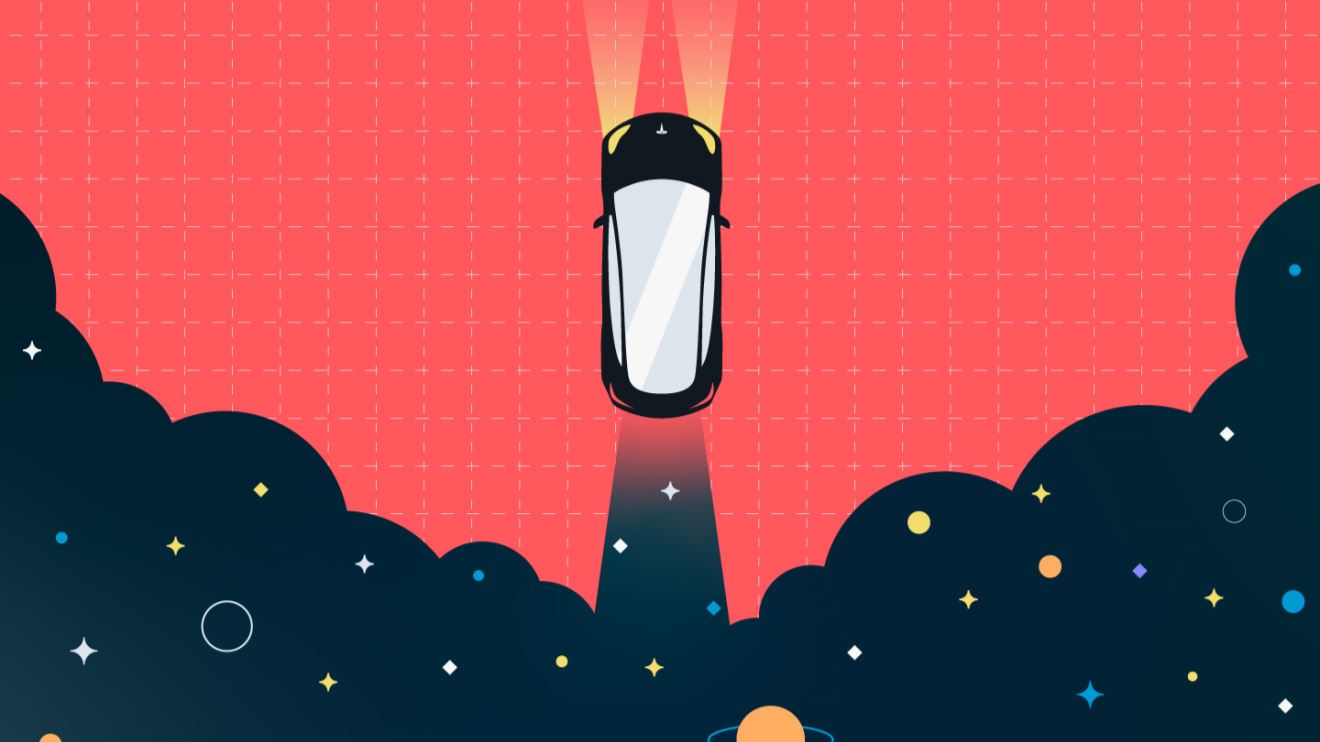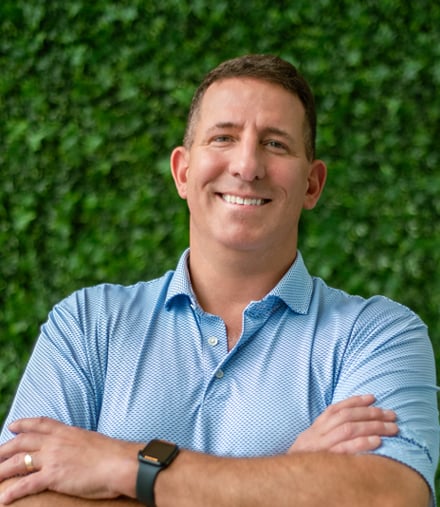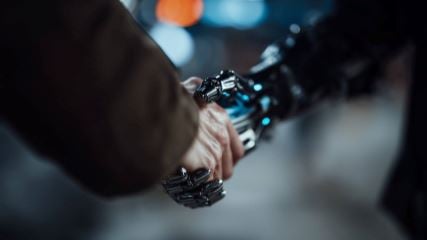Brand Analysis: Elon Musk
Elon Musk is the visionary founder of Tesla, SpaceX, and The Boring Company. For years, he's invested in developing technology that pushes the limits of humanity. Musk's brilliance is matched by his unpredictability. He's a mercurial leader, consistently inciting debate and controversy with his comments, tweets, and decisions.
This no-boundaries approach has led him to become one of the most recognizable global figures with a distinctive personal brand. Why has Musk built such a loyal following? Why has he been able to inspire belief in so many consumers and business leaders? And how does his personal brand impact his businesses?
Musk is on record saying, “I hate the whole idea of brands and branding.” But his shrewd management of his own brand and his companies suggests otherwise. We break it all down in the latest Solving for B° podcast episode.
- Defining Elon Musk's Brand
- Elon Musk vs. His Own Brands
- Elon Musk's Brand DNA
- Brand Insulation and The Founder's Dilemma
- Does Elon Musk Hate Branding?
- Tesla and SpaceX: Same Vision?
- How Brands Survive Without Their Innovators
Episode Transcript
*This transcript has been edited and formatted for readability.
Defining Elon Musk's Brand
Chris: There is a lot to unpack with Elon Musk but I want to start by defining his brand. What is Elon Musk's brand?
Bo: I think he's pretty undefinable, but that's part of his brand. Having read a number of books on Musk and other leaders like him, I think his family upbringing had a huge impact on his kind of no-boundaries approach to things. And when you think of no-boundaries, you think of the ability to go beyond, or to take something beyond, what normal convention is.
I think there's a very detailed part of him, which comes across through his focus on his technological skill capabilities. And again, if you read anything about him there is a technical component to him that is pretty deep.
He's just unrelenting. He built this boundless thing with this relentless pace of "There's nothing we can't achieve if we don't put our minds and hearts to it." That's what it takes to put a rocket ship into space. But there are definitely negative aspects to that as well.
Cynthia: Agreed. It's a type of personality that takes on the automotive industry, that tries to shake it up and succeeds. That attitude has some interesting consequences.
Chris: I think part of it is there's a little bit of a rebellious nature to him, and you can look at rebellious as a bad or a good thing, right? "I'm rebelling against convention and conventional wisdom and, what's possible and what's not." But sometimes, as we'll talk a little bit about here, that rebellious nature can rear its head in other areas that may negatively impact the brand.
Elon Musk Versus His Own Brands
Chris: Does Elon's personal brand overshadow Tesla and SpaceX? If we think it does in some instances, is that a good or a bad thing?
Cynthia: I would say, going back to what we said earlier, if it weren't for his attitude and everything else, the spirit of Elon Musk, you wouldn't have those types of companies. Could it negatively affect it? Absolutely.
Although I think there's a little bit of a distinction between "can Elon Musk damage his brand," versus "can he hurt the business and is the brand dependent on having a leader who has this "we're going to break the rules and we're pushing limits" attitude. But you need that for the types of businesses that he's going into that either build the electric car or takes on something as massive as going to Mars. You need a little something extra to get to that point.
Bo: I think that's a big part. If you look at the brand studies we do, we ask the question, "If your company were a brand, who would it be?" Technology companies historically for us can either be like Bill Gates or Steve Jobs. Steve Jobs especially was a figure who was constantly brought up for his drive and expertise, just like Elon. But now, we're getting less of Steve Jobs because his persona has been out of the spotlight for a number of years since he's passed.
Elon Musk is becoming that kind of symbol. Somebody that can drive an organization to do incredible things or reach incredible heights.
To Cynthia's point, when you build a brand around iconic figures or a personal brand, there's a challenge with that. Nike has built its whole business with iconic people that they could interchange. Accenture did it with Tiger Woods and we saw what happened to Tiger Woods.
So when you take that kind of personality and you have it interwoven with your brand there can be issues. If you watch as Tesla becomes more operations focused and having to deal with SEC scrutiny and kind of operate the company, that will become more apparent.
Until they get to Mars, Elon is flying as King of Space X. But as Tesla starts creating and becoming more of a commodity, becoming more operations focused and having to deal with SEC scrutiny, Elon may have to pull himself out to avoid causing issues, much like Jobs did. But personalities like that have a hard time doing that.
Elon's Brand DNA
Chris: Would you say that either of Elon's companies (Tesla and Space X) or both were built to take on his personality or take on some of his image?
Cynthia: Absolutely. The root and the development and the growth of those businesses and the dreams behind them are tied into what's rolling around in Elon Musk's head.
Think about PayPal, what that's turned into. You know, you think about Tesla and then SpaceX, and now SolarCity and Neuralink. For those businesses to flourish, you have to have a leader that has a vision that goes beyond what people would say, "is doomed to fail."
The fact is Elon doesn't care. He puts the money behind it. He invests in the crazy ideas. A lot of other people will be like, "I'm not doing this." He is willing to take risks and absolute failures and turn them into wins. It's like SpaceX's rocket ships. How many times have they crashed to earth during re-entry or trying to land?
If it had been anyone else, I think they just would have been like, "You know what? This is losing. We're just flushing money down the toilet. This is never going to work."
If it wasn't for him, those businesses wouldn't have been successful. But also it's ultimately that attitude that creates the brand. Historically, if the CEO doesn't have the vision, that's an issue. But when they do, like Steve Jobs, that person seemingly infuses their DNA into the company and into the brand.
Now imagine what it's like for every employee that goes into one of these companies. They have to live up to that brand, too. They've got to have that attitude. And I can only imagine what the expectations are for any of those employees.
Bo: Right, and I think that that's the hard part. Expectations can be incredibly high, especially if you're working with legends like Steve Jobs or Michael Jordan. When you're on their team they expect the best from you. It's hard to live up to their expectations.
And then it scales! It's one thing when you're Michael Jordan with a band of 12 or 13 other people. It's another thing when you're one person managing hundreds of thousands. Finding 100,000 people that have that same ethic and that same drive I think that that's a challenge. But again, when you put it back into the mission and the mission statement for Tesla is, "to accelerate the world's transition to sustainable energy," then maybe I would want to get up in the morning and go to work for that.
But they have to make sure it's not about them too, right? I think leaders of iconic brands sometimes have a hard time with this. If it's all about them, that motivation can fizzle out after a while. There's a point that this ship doesn't go to Mars if it's all about Elon Musk. And so being able to walk that fine line of, "Hey, follow me. I'm crazy," and, "Hey, follow me. It's all about me." You've got to be careful with that because he's leading a company.
Cynthia: Yeah. We've seen that attitude kind of come back and bite the company with crazy statements on social media or incidents like on the Joe Rogan Podcast. You know, he'll do things, and then the stock price will drop or explode upwards. There are benefits to it, but then there are a lot of negative ones too.
Chris: Yeah. It's true to his brand. Even that kind of chaos is kind of true to his brand. He's not going to bite his tongue. He's going to tell you what he thinks. I shared a story yesterday with you guys about how despite the pandemic, Tesla turned a profit. Which was unexpected, right? So whether we can wrap our heads around it or not, or why that actually happens and works aside, the results kind of speak for themselves.
Brand Insulation and The Founder's Dilemma
Chris: Cynthia, you mentioned that his brand itself can kind of stay intact and be somewhat insulated despite maybe some erratic behavior. But that doesn't mean the business itself is insulated from the consequences, right?
Cynthia: Absolutely. I think that's going back to the whole of what we're talking about today. It's like how he affects a brand; is he part of the brand, is he the brand? It is an issue? Should you ever depend on one single person to represent your company?
For now, he has the benefit of being a major stakeholder at each of these companies. It'll be interesting to see how these companies transition and change going into the future when he's no longer around.
Chris: Well you have to think about the risk of having one visionary out front as the focal point of the brand. Look at Theranos and Elizabeth Holmes and that whole situation. That is a case study in how things can go horribly wrong.
Cynthia: Yeah, but unlike Holmes, Elon is willing to admit when SpaceX or Tesla has failed. So he's definitely erratic but he also doesn't try to hide or sugar coat mishaps.
Bo: Yeah. He owns stuff. With that erratic behavior, you can't just assume that bravado and no boundaries is completely reckless and amoral. I think sometimes that showmanship can get misconstrued as being unethical. And when you have brand stakeholders, the challenge is you have to adhere to a certain level of scrutiny. Some people are good at that. Some people are bad at that. And when it's all you, I think that can cause an issue.
You should listen to his shareholder calls. They are almost comical. They will start out normal, with the CFO's talking, and then all of a sudden a question will be asked and Elon just runs over the whole thing.
That being said, he's got a vision for how he wants it to be. And no matter how much his people practice, they can't articulate that vision the same way he can. I think the other side of it is the danger you talked about, Chris. When you are public, there are certain things you have got to follow. And if you're a rule-breaker, man, that can cause some issues.
You also have board issues with that kind of personality too. Steve Jobs always had a board that was stacked to his vision and that was always an issue. If shareholders wanted to add an activist or new personality to the board they would have to fight to penetrate the Steve Jobs wall. That rarely happened. But there were a number of those times where Jobs would have to acquiesce and put somebody on the board that he didn't want. He could win them over, too. That was the other side of it.
I think a lot about CEOs like that too. Look at Tilman Fertitta, he's got his face on billboards, he's got his own show on MSNBC, you name it. But, you know, he eventually decided to take his brand back. He was more or less like, "Forget it, I'm buying the sucker back," because he wanted to personally be the brand. That can bring trouble if you're a public company.
That's a big ego, and I'm not knocking him, but to have that mindset of, "I want to control it all, you know, forget the shareholder stuff and this board stuff. I would rather go without somebody else's money, and I would rather and call the shots," to have that mindset is crazy but you have to respect it.
That's where a person like Elon Musk walks a fine line, whereas whatever you think about Tilman Fertitta, you know, respecting him for saying, "Look, I don't want to be controlled. I want to do this," You can still get in trouble, but you know, the SEC is not going to come down on you. But you're also not beholden to shareholders, and that's a different brand audience that you have to consider when you're public.
Does Elon Hate Branding?
Chris: I want to switch gears, here. Bo, you talked about Elon's showmanship, and Cynthia, you mentioned some of his colorful antics. I have a quote here from Elon saying he hates branding. Do you think he believes that?
Cynthia: Do I believe Elon Musk thinks that business matters are BS? No way. I feel like he is a very sharp, savvy businessman, and he knows exactly what it means. Everybody saw the SpaceX launch and how a Tesla car was the payload on its way to Mars. It was all over TV with that Tesla logo smack dab in the middle of that darn dashcam. He's a showman and he knows exactly what he's doing.
It must be interesting having to manage his brand and his marketing department. He's probably applying the same type of unorthodox mindset to his marketing team and unleashing them onto his projects. I would imagine they get the same kind of thing that the engineers get and the people on the floor making the cars or the rocket ships. So I think if he really hated branding then you wouldn't be getting these shocking promotions or even seeing the Tesla logo as much as you do.
Bo: Yeah. I think you don't own your brand, you manage it. If you don't manage it, your customer owns your brand. And if you provide an outstanding product that's interesting, then it brands itself. Yeah. I would call BS like Cynthia. He is managing his brand.
Hopefully, he's doing it thoughtfully, not recklessness. If the wildness of his brand isn't well thought out, and when I say that maybe not contrived or planned, and that's probably what he's talking about, then he is the luckiest individual in the world. Because, you know, you don't step in as many cow patties as he has without having some kind of thought through on what's going to happen after stepping in the cow patty.
They may not use traditional media to manage their brand, much like how Starbucks or Apple didn't advertise for a while. Sometimes people conflate brand with media and promotion. And while he is a showman, he doesn't use the traditional media channels for promotion.
Tesla and SpaceX: Same Vision?
Chris: How do Tesla and SpaceX relate to one another in terms of a brand? Do they share the same values and goals?
Cynthia: You have to take a step back and just look at what the companies are trying to achieve, which in this case is just breaking the rules, and doing things that everybody else either said couldn't be done or whatever else. For that reason, I think both Tesla and SpaceX have to have that Elon Musk component of fearlessness in them. Both come from Elon's DNA. They're both completely interrelated, and they're both taking on two industries as two companies that had either, been dead in the water for a long time or really struggling in the United States.
Bo: If you read the mission statement for Tesla it says, "Accelerate the world's transition to sustainable energy." Similarly, if read what they state in the mission for SpaceX it says, "I want to wake up in the morning and think the future is going to be great. And that's what being a spacefaring civilization is all about. It's about believing in the future and thinking the future will be better than the past." In both brands there is an ethos of making society better; building society for the future, having a vision of something different, or a better way to do things.
And so I think there's a common bond between them but they are different companies and brands. The commonality here being the vision; Elon's vision more precisely. That's not what Boeing or whoever else is building spaceships, is probably saying. It might be closer to, "We build great spaceships that take you to the moon."
GM is going to get cars and vehicles that move you from one place to the other. They don't have this mission and brand and stuff that says, "we're improving civilization." The fact that both Tesla and SpaceX do however is pretty exciting.
Chris: Yeah. It's inspirational, right? Bo, to your point, it's inspiring not only to your investors and consumers but also to those people that come to work every day.
How Brands Survive Without Their Innovators
Chris: We've talked a lot about Elon and drawing the comparison to Steve Jobs. One of the things you guys know is I'm a Disney geek. So when I think about a brand that's inextricably linked to its founder, I think about Walt Disney. Brands like Disney, Apple, and even Nike, have all had to transition to life after their founder. After the visionary has either passed on, retired or whatever it may be. Some to varying degrees of success.
How does a company do that? How does a brand do that? Specifically, in the case of Elon Musk, Tesla and SpaceX. How do you make that transition? Or what are maybe some of the things to look out for as you're making that transition?
Bo: I think you have to be prepared for it no matter what. Look at the case of Steven Jobs and Tim Cook. If you look at that, it was kind of forced, right?
Steve Jobs got sick. He went through being sick one time. Cook helped him get his tests run, Jobs got better, then got sick again, then there's a period of time knowing that Cook is going to have to take over. I mean, who's second for Elon Musk?
The Walt Disney Company ran through that, too. Walt was such an iconic leader for that brand and was the visionary. I mean, who would have thought swamp land in Florida for the happiest place on earth? But I do think that leaders need to be continually thinking about that, you know? I believe in two to four years, Tesla is going to be an operations-focused company. They're going to be a cash cow like Apple is now.
But that also means Elon will have to transition out. And that's a shame, right? It's hard for the founder to be able to have the self-awareness to go, "I'm not good at this. Now I'm going to go become R&D for this company, or I'm going to step out of this company and go put rocket ships on Mars and we're going to let it run."
Cynthia: I think he's got bigger fish to fry. If he can establish Tesla, that's one arm of the future, and SpaceX, that's another arm, and SolarCity's another arm. You could theoretically say that he could gather up all of these technologies and he's really working towards something bigger, which might even be establishing a civilization on Mars or a lunar base, you never know.
Bo: Well, you can't get oil to Mars. I wonder if you can get oil on Mars. If not you're going to have to use solar. I mean, it is pretty interesting how all this can work together.
Cynthia: All that stuff can get stitched together. So I think he's got bigger fish to fry.
Chris: One of the things I found it interesting, Bo mentioned Elon is not cut out to run a cash cow. And the reason why is because that does not align with his personal brand. His personal brand is to see the impossible and take that as a challenge. To go and push the boundaries of things and break things to the extreme. So to tie the whole episode back together your brand is ultimately going to dictate what you should be doing and the things where you will exceed and excel in life.
And for Elon Musk, that has been, to Cynthia's point, where Elon says, "You know what? Everybody else has failed there, but I'm not going to fail. Watch this." I think that's an important piece; staying true to your brand, chasing your white whale. Not to your peril, but chasing that and following through.
Cynthia: He's got to walk the walk. If he had come out and established these brands, and even his own personal brand, and then just kind of took it easy and said, "Well, I've achieved the success I'm done," then it would have been kind of a letdown. But as his personal brand goes, he's living it, because he keeps on pushing and he's not stopping. So he's true to himself. He's a passionate person, he's a dreamer, and he's making those dreams into a reality.
A Few Extra Insights
If you want to learn more about creating brand believers, check out these resources:





